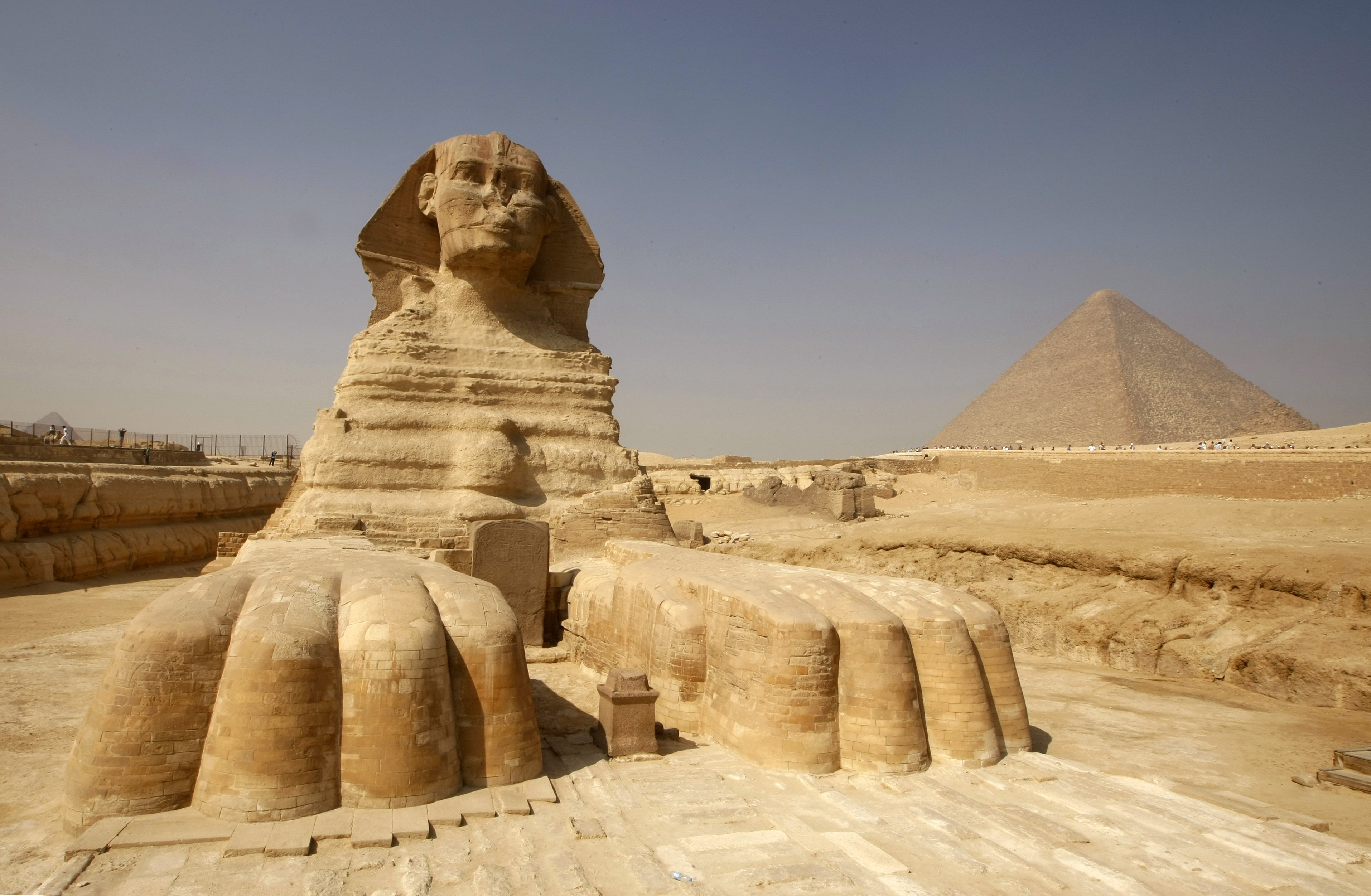
A previously unknown statue of a sphinx has been discovered in Egypt, the general director of Luxor Antiquities, Mohamed Abdel Aziz, announced on Sunday.
Construction workers upgrading the historic Al-Kabbash Road between the famous Luxor and Karnak temples stumbled upon the find, the English-language Egypt Today reports.
While some news outlets compared the discovery to a second version of the monumental Great Sphinx of Giza, the new find seems to be more of a country cousin. But in a nation struggling to rebuild its tourism industry, every new antiquity helps.
The Ministry of Egyptian Antiquities is developing a way to lift the newfound statue from its resting place, in the hope of avoiding a repetition of the fiasco last year in Cairo when an 24-foot-tall statue of a pharaoh’s head was lifted with an excavator, leading to accusations of negligence. In the meantime, construction work has been paused on the road and the Minister of Antiquities, Khaled al-Anani, is encouraging tourists to visit the site to see the statue.
A researcher in Egyptology, Bassam al-Shamma, told Egyptian media that the find is not altogether surprising as many similar sphinx statues have been found across Luxor. Several new discoveries have been found in recent years, and the road is already lined with many other small stone versions of the mythical creatures dating from around 1400 BC. Some of these are being excavated and repaired as part of the project to pave and restore the road and the equivalent of over $33 million has already been spent on the project since it began in 2005.
The Avenue of Sphinxes on the Al-Kabbash road in Luxor. Photo courtesy Tom.Blackie via Flickr.
Egypt’s tourism industry has shown signs of recovering after a lengthy slump caused by the country’s political instability and a series of terrorist attacks. Last year, a reported 8 million people visited the country. In 2016, only 5 million went.
The mythical creature of the sphinx has the head of a human and the body of a lion. In ancient Greek tradition, the sphinx’s head is often a merciless female, killing and eating all those who cannot answer its riddle. For the Egyptians, though, the guardian creature was seen as benevolent, and the heads of the statues were often carved in the likeness of pharaohs. This is the case with the famous Great Sphinx; the monumental statue is thought to have been sculpted in likeness of the pharaoh Khafra.
Other famous Egyptian sphinxes include a granite example with the head of the pharaoh Hatshepsut, which is now in the Metropolitan Museum of Art in New York. The Great Sphinx of Tanis in the Louvre is one of the largest the largest sphinxes outside of Egypt.